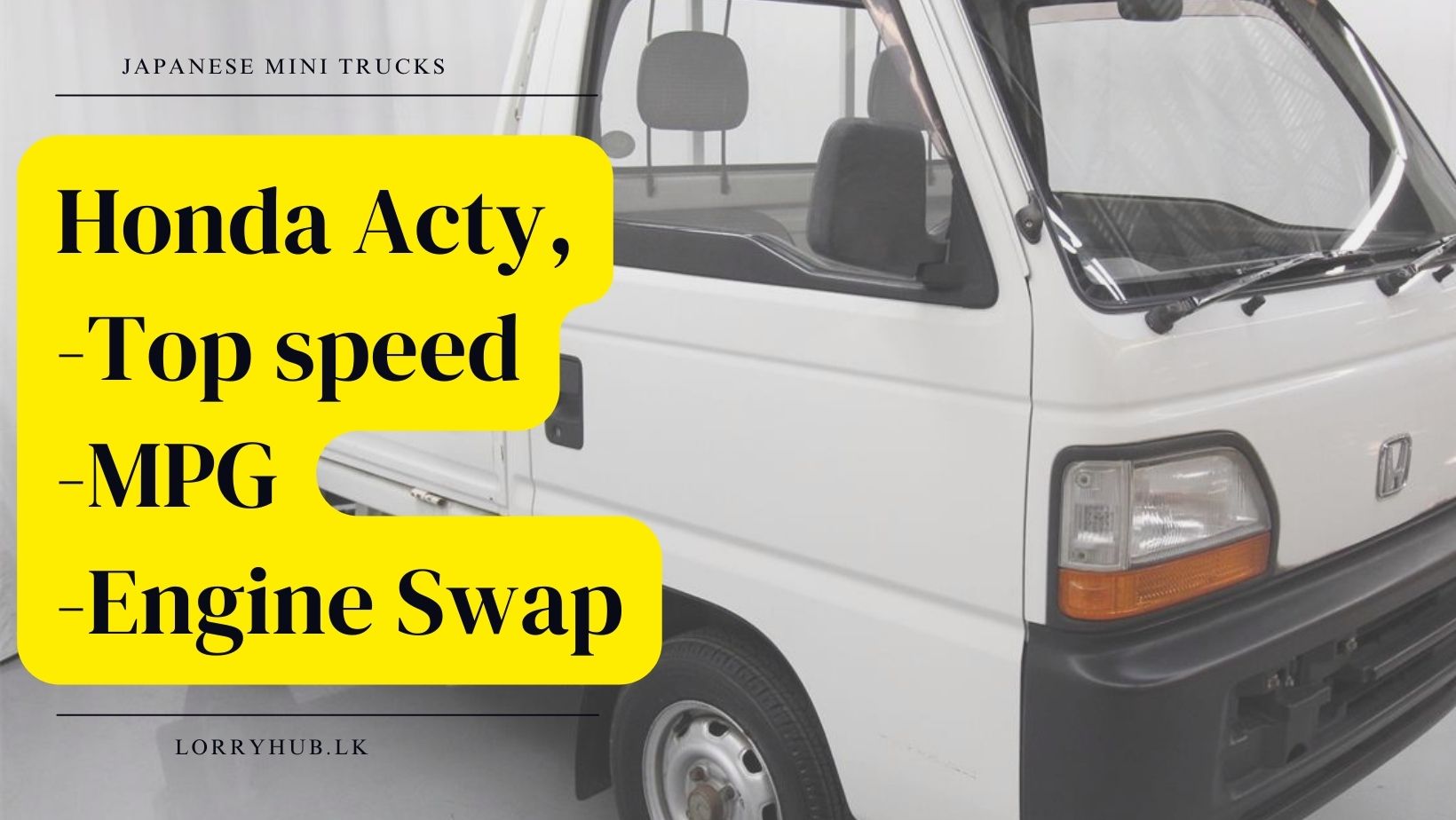Introduction
When it comes to importing mini trucks directly from Japan or purchasing from a local dealership, there’s a lot more to consider than just the price and model.
One crucial aspect often overlooked is the vehicle’s history.
This is especially true for those looking to import Kei trucks from Japan or buying or selling a second-hand mini truck used in Japan.
Hidden Defects: The Silent Menace in used Japanese mini trucks
Did you know that thousands of vehicles with hidden defects are being imported from Japan and sold every week!
These defects, if unnoticed, can lead to significant safety risks and unexpected repair costs.
Issues such as title problems, undisclosed accidents, flood damage, odometer discrepancies, and more can lurk beneath the shiny exterior of your imported mini truck!
The questions to ask yourself before buying used Japanese mini trucks
Buying a vehicle is likely to be one of the most significant investments you’ll ever make.
When opting for a used vehicle, it can be challenging to ascertain whether the vehicle you believe you’re purchasing—a reliable one that will endure for years—is precisely what you’ll receive.
Some questions to ponder include:

- Has the vehicle ever been involved in an accident, and is this documented?
- Has the vehicle sustained damage from floods, fires, hail, or other natural disasters?
- Is the mileage displayed on the odometer accurate and trustworthy?
- Has the vehicle ever been subject to a recall?
- Was the vehicle utilized as a service vehicle, such as a police car or taxi?
- Has the vehicle ever been reported as stolen?
- Does the vehicle meet your safety standards?
- Is there any potential risk of radioactive contamination associated with the vehicle?
Why it’s essential to check the vehicle’s history before making a purchase.
Common factors contributing to the prevalence of hidden defects in imported Japanese vehicles include,
- Aging Fleet: As Japan’s domestic market shifts toward newer models, older vehicles find their way into the used car export market. These aging cars may have hidden wear and tear that becomes apparent only after purchase.
- Accident History: Some vehicles may have been involved in accidents and subsequently repaired without full disclosure. In some cases, the repairs might not meet international safety standards, posing risks to unsuspecting buyers.
- Tampered Odometers: Odometer tampering remains a significant concern, with sellers resetting mileage to make vehicles appear newer and less traveled than they are. This practice distorts the true wear and tear of the vehicle.
- Lack of Inspection Standards: While Japan has stringent vehicle inspection standards, the same cannot be said for all export destinations. Vehicles exported to countries with lax inspection regulations may not undergo thorough checks for hidden defects.
To mitigate the risks associated with importing Japanese vehicles, prospective buyers should consider the following precautions,

- Thorough Inspection: Conduct a comprehensive inspection of the vehicle, preferably by a certified mechanic, to uncover any hidden defects or issues.
- Vehicle History Reports: Obtain a vehicle history report to check for accidents, title issues, and odometer discrepancies. This can provide valuable insights into the vehicle’s past.
- Buy from Reputable Dealers: Choose reputable dealers or importers with a track record of transparent transactions and customer satisfaction. Research their reputation and seek reviews from previous customers.
- Independent Verification: If possible, independently verify the vehicle’s history and condition through third-party services to ensure the information provided is accurate.
Importing Specific Mini Trucks from Japan
When importing specific models like the Subaru Sambar, Suzuki Carry, or Honda Acty, it’s even more critical to check the vehicle history. These popular models are often in high demand, making it easier for sellers to hide any potential issues the vehicle might have.
How to Check Vehicle History?
When ensuring transparency and providing buyers and sellers with comprehensive insights into a vehicle’s past, CAR VX stands out as Japan’s first and most complete vehicle history report service.
A CAR VX report acts as a safeguard against potential pitfalls by revealing crucial details about a vehicle’s history.

From title problems to accidents, flood damage, and odometer issues, a CAR VX report leaves no stone unturned in ensuring that buyers are well-informed about the condition of the mini truck they are considering.
What CAR VX Vehicle History Reports Covers
- Title Problems: Ensuring that the legal ownership of the vehicle is clear and legitimate.
- Vehicle Registration: Verifying the registration details to avoid any legal complications.
- Accidents/Repairs: Uncovering the history of accidents and repairs to assess the vehicle’s structural integrity.
- Flood Damage: Identifying any damage caused by flooding, which can have long-term repercussions.
- Odometer Problems: Verifying the accuracy of the recorded mileage to prevent odometer fraud.
- Airbag Deployment: Confirming the status of airbags, a crucial safety feature in any vehicle.
- Recalls: Checking for any outstanding recalls to address potential safety issues promptly.
- Safety Rating: Providing insights into the safety rating of the vehicle.
- In addition, it also covers
- Detailed Technical Data: Offering in-depth technical information to assess the overall condition.
- Average Market Price: Providing a benchmark for fair pricing in the market.
- Manufactured Date: Verifying the vehicle’s age and potential implications on performance and value.
Car VX sample report






How to Import a Kei Truck Successfully
Now that we’ve established the significance of a comprehensive vehicle history check, let’s explore the various options available for buying your dream kei truck.
- Dealerships in Japan: Consider reaching out to reputable dealerships in Japan that specialize in kei trucks. They often have a diverse inventory and can provide essential details about the vehicle’s history.
- Online Auctions: Participating in online auctions allows you to access a wide range of options. However, exercise caution and prioritize vehicles with detailed history reports, such as those provided by CAR VX.
- Private Sellers: Direct purchases from private sellers can be a viable option. Ensure you obtain a comprehensive history report and have the vehicle inspected by a trusted mechanic.
- Importers and Brokers: Utilizing the services of importers or brokers experienced in dealing with Japanese kei trucks can streamline the process. Verify their reputation and insist on detailed vehicle history information.
Conclusion
In the exhilarating pursuit of importing mini trucks from Japan, it is easy to be swept away by the charm of these compact vehicles.
However, the potential risks associated with hidden defects and undisclosed issues should not be underestimated.
For those eyeing a Subaru Sambar import, Suzuki Carry import, or Honda Acty import, the diligence of a thorough vehicle history check is the key to a successful and secure investment.


![Top Picks for the Best Kei Truck in 2025 and Beyond [Updated] 2 Top Picks for the Best Kei Truck in 2025 and Beyond [Updated]](https://lorryhub.lk/wp-content/uploads/2023/04/pexels-julia-volk-5273211-750x500.jpg)

